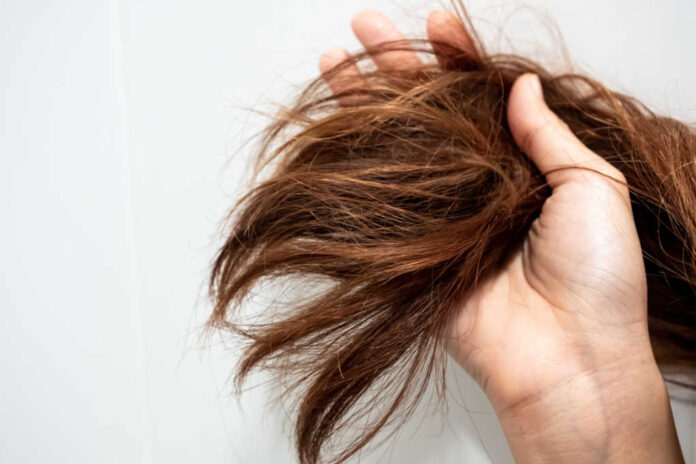
If your hair feels dry, brittle, or straw-like, this may indicate it’s time for a change in your hair care routine.
Getting your hair back to its healthy state means figuring out what may be contributing to the lack of moisture and then making some adjustments.
Medical Conditions Linked To Dry Hair
There are a few medical issues that may lead to dry hair:
- Hypothyroidism – An underactive thyroid gland produces less thyroid hormone. One of the early signs and symptoms of hypothyroidism can be dry hair.
- Hypoparathyroidism – This occurs when your body doesn’t produce enough parathyroid hormone. This hormone helps regulate calcium in your body. A drop in calcium levels may lead to dry and brittle hair.
- Eating Disorders – People with anorexia or bulimia are at risk for dry hair due to malnutrition and nutritional deficiencies.
These conditions have other signs and symptoms in addition to dry hair, so it’s important to talk to your doctor if you’re concerned.
Other Possible Causes for Dry and Brittle Hair
It’s more common for straw-like hair to be the result of something you’re doing to your hair rather than a medical condition.
Some of the more common contributing factors include:
- too much shampoo
- not enough conditioner
- high-temperature drying and styling tools (blow dryer, curling irons, flat irons, etc.)
- rough handling, especially when wet or when detangling
- frequent dyeing or styling
- sun damage
- hot environments
- cold and dry winter air
- overexposure to chemicals through treatments or swimming pools
- inadequate diet and nutrition
Fortunately, there are things you can do to help get your hair back to its healthy state.
Ways To Bring The Moisture Back
If your hair feels dry and straw-like, you can take steps to help rehydrate it.
- Try other shampoos and conditioners that may be better for your hair type
- Use a conditioner every time you shampoo, and leave it in for longer
- Shampoo less frequently
- Lower the heat setting on your hairdryer and styling tools
- Use hair drying and hot styling tools less often
- Gently use a wide-toothed comb to detangle your hair, especially when wet
- Always wear a hat or head covering when out in the sun
- Drink more water
- Eat more nutritious foods, including plenty of fruits and vegetables
Making these changes to your hair care routine and diet may help improve the condition of your hair.
If you don’t see any improvement or are concerned about your hair, talk to your doctor or a healthcare professional. They may be able to help you determine the cause and recommend other treatments or products that could help.






















